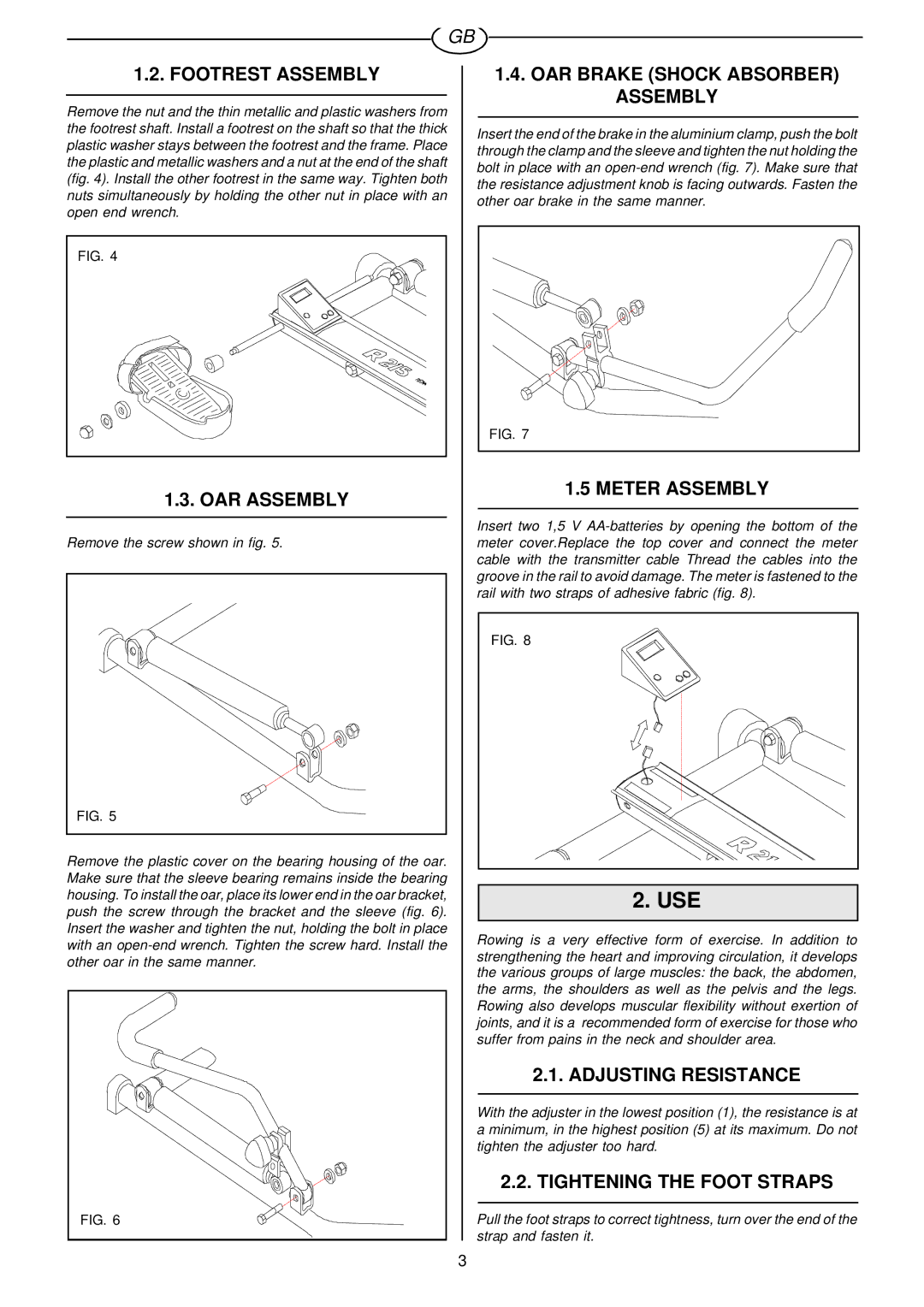
GB
1.2. FOOTREST ASSEMBLY
Remove the nut and the thin metallic and plastic washers from the footrest shaft. Install a footrest on the shaft so that the thick plastic washer stays between the footrest and the frame. Place the plastic and metallic washers and a nut at the end of the shaft (fig. 4). Install the other footrest in the same way. Tighten both nuts simultaneously by holding the other nut in place with an open end wrench.
FIG. 4
1.3. OAR ASSEMBLY
Remove the screw shown in fig. 5.
FIG. 5
Remove the plastic cover on the bearing housing of the oar. Make sure that the sleeve bearing remains inside the bearing housing. To install the oar, place its lower end in the oar bracket, push the screw through the bracket and the sleeve (fig. 6). Insert the washer and tighten the nut, holding the bolt in place with an
FIG. 6
1.4.OAR BRAKE (SHOCK ABSORBER) ASSEMBLY
Insert the end of the brake in the aluminium clamp, push the bolt through the clamp and the sleeve and tighten the nut holding the bolt in place with an
FIG. 7
1.5 METER ASSEMBLY
Insert two 1,5 V
FIG. 8
2. USE
Rowing is a very effective form of exercise. In addition to strengthening the heart and improving circulation, it develops the various groups of large muscles: the back, the abdomen, the arms, the shoulders as well as the pelvis and the legs. Rowing also develops muscular flexibility without exertion of joints, and it is a recommended form of exercise for those who suffer from pains in the neck and shoulder area.
2.1. ADJUSTING RESISTANCE
With the adjuster in the lowest position (1), the resistance is at a minimum, in the highest position (5) at its maximum. Do not tighten the adjuster too hard.
2.2. TIGHTENING THE FOOT STRAPS
Pull the foot straps to correct tightness, turn over the end of the strap and fasten it.
3
